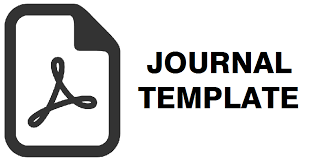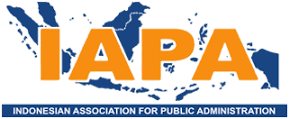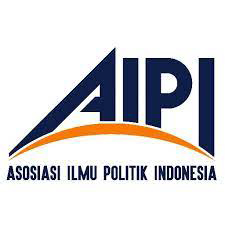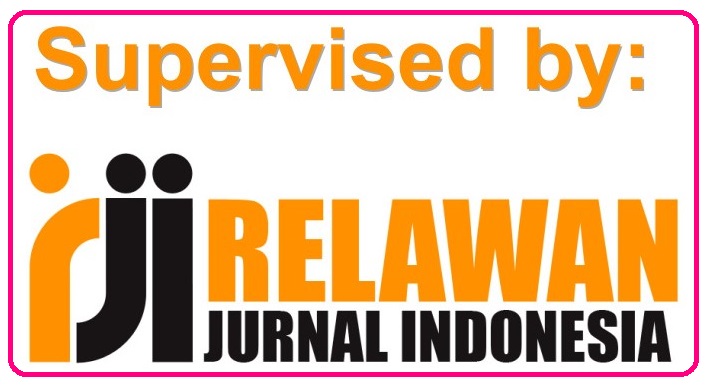Entrepreneurial Leadership, Innovative Behavior, Organizational Effectiveness: A Mediation Analysis
Abstract
The concept of organizational effectiveness emphasizes leadership carried out by leaders. Therefore, it is important to know the factors that can increase organizational effectiveness. This research has an aim to examine (i) the effect of entrepreneurial leadership on organizational effectiveness;(ii) the effect of entrepreneurial leadership on innovative behavior; (iii) the effect of innovative behavior on organizational effectiveness; (iv) the role of innovative behavior as a mediation variable. 90 questionnaires were distributed namely online and offline to SMEs owners in Rembang Regency as a data collection research method by using likert scale. The researchers used this PLS-SEM analytical method because the number of samples used in the study was small. Four results of the study have found: (i) there is a positive and significant effect between entrepreneurial leadership and organizational effectiveness; (ii) there is a positive and significant effect between entrepreneurial leadership and innovative behavior; (iii) there is a positive and significant effect between innovative behavior and organizational effectiveness; (iv) innovative behavior could play the role as mediating variable in the relationship between entrepreneurial leadership and organizational effectiveness. The organizations that practice entrepreneurial leadership and innovative behavior have better performance. Because it is important for organizations, especially SMEs owners to carry out entrepreneurial leadership in running a business.
Downloads
References
Alexe, C. G., & Alexe, C. M. (2018). Similarities and differentiations at the level of the industries in acquiring an organizational culture in innovation. Procedia Manufacturing, 22, 317–324. https://doi.org/10.1016/j.promfg.2018.03.048
Anderson, N., Potočnik, K., & Zhou, J. (2014). Innovation and Creativity in Organizations: A State-of-the-Science Review, Prospective Commentary, and Guiding Framework. Journal of Management, 40(5), 1297–1333. https://doi.org/10.1177/0149206314527128
Azar, G., & Ciabuschi, F. (2017). Organizational innovation, technological innovation, and export performance: The effects of innovation radicalness and extensiveness. International Business Review, 26(2), 324–336. https://doi.org/10.1016/j.ibusrev.2016.09.002
Baer, M. (2012). Putting creativity to work: The implementation of creative ideas in organizations. Academy of Management Journal, 55(5), 1102–1119. https://doi.org/10.5465/amj.2009.0470
Bagheri, A., & Harrison, C. (2020). Entrepreneurial leadership measurement: a multi-dimensional construct. Journal of Small Business and Enterprise Development, 27(4), 659–679. https://doi.org/10.1108/JSBED-01-2019-0027
Baizakov, S., & Baizakov, N. (2019). Evaluation of the Effectiveness of Innovative Management Projects in the Currency of the World. American Journal of Industrial and Business Management, 09(11), 2008–2024. https://doi.org/10.4236/ajibm.2019.911132
Becker, L., Coussement, K., Büttgen, M., & Weber, E. (2022). Leadership in innovation communities: The impact of transformational leadership language on member participation. Journal of Product Innovation Management, 39(3), 371–393. https://doi.org/10.1111/jpim.12588
Cameron, K., & Whetten, D. (1983). Organizational Effectiveness: A Comparison of Multiple Models. In Journal of Policy Analysis and Management (Vol. 3, Issue 3).
Champathes Rodsutti, M., & Swierczek, F. W. (2002). Leadership and organizational effectiveness in multinational enterprises in southeast Asia. Leadership & Organization Development Journal, 23(5), 250–259. https://doi.org/10.1108/01437730210435965
Cogliser, C. C., & Brigham, K. H. (2004). The intersection of leadership and entrepreneurship: Mutual lessons to be learned. Leadership Quarterly, 15(6), 771–799. https://doi.org/10.1016/j.leaqua.2004.09.004
Colakoglu, S. S., Erhardt, N., Pougnet-Rozan, S., & Martin-Rios, C. (2019). Reviewing creativity and innovation research through the strategic hrm lens. In Research in Personnel and Human Resources Management (Vol. 37). https://doi.org/10.1108/S0742-730120190000037007
da Silva Lopes, T., Casson, M., & Jones, G. (2019). Organizational innovation in the multinational enterprise: Internalization theory and business history. Journal of International Business Studies, 50(8), 1338–1358. https://doi.org/10.1057/s41267-018-0156-6
Ding, H., Lin, X., & Su, W. (2021). Employee strengths use and innovative behavior: a moderated mediation model. Chinese Management Studies, 15(2), 350–362. https://doi.org/10.1108/CMS-05-2019-0191
Ding, X., Li, W., Huang, D., & Qin, X. (2022). Does Innovation Climate Help to Effectiveness of Green Finance Product R&D Team? The Mediating Role of Knowledge Sharing and Moderating Effect of Knowledge Heterogeneity. Sustainability, 14, 1–20. https://doi.org/10.3390/su14073926
Duan, Y., Cao, G., & Edwards, J. S. (2020). Understanding the impact of business analytics on innovation. In European Journal of Operational Research (Vol. 281, Issue 3). Elsevier B.V. https://doi.org/10.1016/j.ejor.2018.06.021
Gold, A. H., Malhotra, A., & Segars, A. H. (2001). Knowledge management: An organizational capabilities perspective. Journal of Management Information Systems, 18(1), 185–214. https://doi.org/10.1080/07421222.2001.11045669
Gupta, V., MacMillan, I. C., & Surie, G. (2004). Entrepreneurial leadership: Developing and measuring a cross-cultural construct. Journal of Business Venturing, 19(2), 241–260. https://doi.org/10.1016/S0883-9026(03)00040-5
Hair, J. F., Black, W. C., Babin, B. J., & Anderson, R. E. (2019). Multivariate Data Analysis. Cengage Learning EMEA.
Harrison, C., Burnard, K., & Paul, S. (2018). Entrepreneurial leadership in a developing economy: a skill-based analysis. Journal of Small Business and Enterprise Development, 25(3), 521–548. https://doi.org/10.1108/JSBED-05-2017-0160
Harrison, P., & Roomi, M. A. (2011). Entrepreneurial Leadership: What Is It and How Should It Be Taught? International Review of Entrepreneurship, 9(3), 1–43. https://www.researchgate.net/publication/268384918_Entrepreneurial_Leadership_What_Is_It_and_How_Should_It_Be_Taught/citation/download
Hughes, D. J., Lee, A., Tian, A. W., Newman, A., & Legood, A. (2018). Leadership, creativity, and innovation: A critical review and practical recommendations. Leadership Quarterly, 29(5), 549–569. https://doi.org/10.1016/j.leaqua.2018.03.001
Iqbal, A., Nazir, T., & Ahmad, M. S. (2022). Entrepreneurial leadership and employee innovative behavior: an examination through multiple theoretical lenses. European Journal of Innovation Management, 25(1), 173–190. https://doi.org/10.1108/EJIM-06-2020-0212
Ireland, R. D., Hitt, M. A., & Sirmon, D. G. (2003). A model of strategic enterpreneurship: The construct and its dimensions. Journal of Management, 29(6), 963–989. https://doi.org/10.1016/S0149-2063(03)00086-2
Janssen, O. (2004). How Fairness Perceptions Make Innovative Behavior More or Less Stressful. Journal of Organizational Behavior, 25, 201–215.
Jing, F. F., & Avery, G. C. (2011). Where Have The Mediating Variables In Leadership-Performance Research Gone? Journal of Business & Economics Research (JBER), 6(10), 73–84. https://doi.org/10.19030/jber.v6i10.2481
Jung, C. S., & Lee, G. (2016). Organizational Climate, Leadership, Organization Size, and Aspiration for Innovation in Government Agencies. Public Performance and Management Review, 39(4), 757–782. https://doi.org/10.1080/15309576.2015.1137764
Karatepe, O. M., Aboramadan, M., & Dahleez, K. A. (2020). Does climate for creativity mediate the impact of servant leadership on management innovation and innovative behavior in the hotel industry? International Journal of Contemporary Hospitality Management, 32(8), 2497–2517. https://doi.org/10.1108/IJCHM-03-2020-0219
Khalili, A. (2017). Creative and innovative leadership: measurement development and validation. Management Research Review, 40(10), 1117–1138. https://doi.org/10.1108/MRR-09-2016-0213
Kwak, W. J., & Jackson, C. L. (2015). Relationship building in empowering leadership processes: A test of mediation and moderation. Journal of Management and Organization, 21(4), 369–387. https://doi.org/10.1017/jmo.2015.11
Lecic, M. S., Milic, B., Visnjic, R., & Culibrk, J. (2023). Leadership, Innovative Behavior and the Case of Innovative Climate—When the Mediator Becomes the Mediated. Behavioral Sciences, 13(40), 1–15. https://doi.org/10.3390/bs13010040
Lee, H. W. (2017). Sustainable leadership: An empirical investigation of its effect on organizational effectiveness. International Journal of Organization Theory and Behavior, 20(4), 419–453. https://doi.org/10.1108/ijotb-20-04-2017-b001
Lee, L. T.-S., & Sukoco, B. M. (2013). The Effects of Enterpreneurial Orientation and Knowledge Management Capability on Organisational Effectiveness in Taiwan: The Moderating Role of Social Capital. International Journal of Management, Business, and Administration, 24(3), 3.
Lehmann-Willenbrock, N., Rogelberg, S. G., Allen, J. A., & Kello, J. E. (2018). The critical importance of meetings to leader and organizational success: Evidence-based insights and implications for key stakeholders. Organizational Dynamics, 47(1), 32–36. https://doi.org/10.1016/j.orgdyn.2017.07.005
Leitch, C. M., & Volery, T. (2017). Entrepreneurial leadership: Insights and directions. International Small Business Journal: Researching Entrepreneurship, 35(2), 147–156. https://doi.org/10.1177/0266242616681397
Li, C., Makhdoom, H. U. R., & Asim, S. (2020). Impact of entrepreneurial leadership on innovative work behavior: Examining mediation and moderation mechanisms. Psychology Research and Behavior Management, 13, 105–118. https://doi.org/10.2147/PRBM.S236876
Madanchian, M., Hussein, N., Noordin, F., & Taherdoost, H. (2017). Leadership Effectiveness Measurement and Its Effect on Organization Outcomes. Procedia Engineering, 181, 1043–1048. https://doi.org/10.1016/j.proeng.2017.02.505
Majali, T., Alkaraki, M., Asad, M., Aladwan, N., & Aledeinat, M. (2022). Green Transformational Leadership, Green Entrepreneurial Orientation and Performance of SMEs: The Mediating Role of Green Product Innovation. Journal of Open Innovation: Technology, Market, and Complexity, 8, 191. https://doi.org/10.3390/joitmc8040191
Md Shamsul Arefin, Md Rakibul Hoque, & Yukun Bao. (2016). 17- The impact of business intelligence on organization’s effectiveness: an empirical study. Journal of Systems and Information Technology, 17(3), 263–285.
Mehdibeigi, N., Dehghani, M., & Yaghoubi, N. mohammad. (2016). Customer Knowledge Management and Organization’s Effectiveness: Explaining the Mediator Role of Organizational Agility. Procedia - Social and Behavioral Sciences, 230(May), 94–103. https://doi.org/10.1016/j.sbspro.2016.09.012
Mishra, P., & Misra, R. K. (2017). Entrepreneurial Leadership and Organizational Effectiveness: A Comparative Study of Executives and Non-executives. Procedia Computer Science, 122, 71–78. https://doi.org/10.1016/j.procs.2017.11.343
Mittal, S., & Dhar, R. L. (2016). Effect of green transformational leadership on green creativity: A study of tourist hotels. Tourism Management, 57, 118–127. https://doi.org/10.1016/j.tourman.2016.05.007
Mueller, B. (2019). The building blocks of creativity and new ideas. RAUSP Management Journal, 54(2), 242–246. https://doi.org/10.1108/RAUSP-02-2019-0017
Naveed, R. T., Alhaidan, H., Halbusi, H. Al, & Al-Swidi, A. K. (2022). Do organizations really evolve? The critical link between organizational culture and organizational innovation toward organizational effectiveness: Pivotal role of organizational resistance. Journal of Innovation and Knowledge, 7, 100178. https://doi.org/10.1016/j.jik.2022.100178
Nayak, B., Mohapatra, C. M., Mahapatro, B. B., & Mishra, P. C. (2018). Does leadership style affect organizational effectiveness? A study on food processing industry in Odisha-India. Espacios, 39(33).
Newman, A., Neesham, C., Manville, G., & Tse, H. H. M. (2018). Examining the influence of servant and entrepreneurial leadership on the work outcomes of employees in social enterprises. International Journal of Human Resource Management, 29(20), 2905–2926. https://doi.org/10.1080/09585192.2017.1359792
Odoardi, C., Battistelli, A., Montani, F., & Peiró, J. M. (2019). Affective commitment, participative leadership, and employee innovation: A multilevel investigation. Revista de Psicologia Del Trabajo y de Las Organizaciones, 35(2), 103–113. https://doi.org/10.5093/jwop2019a12
Papadimitriou, D. (2007). Conceptualizing effectiveness in a non-profit organizational environment: An exploratory study. International Journal of Public Sector, 20(7), 571–587.
Park, S., & Jo, S. J. (2018). The impact of proactivity, leader-member exchange, and climate for innovation on innovative behavior in the Korean government sector. Leadership and Organization Development Journal, 39(1), 130–149. https://doi.org/10.1108/LODJ-09-2016-0216
Perneger, T. V., Courvoisier, D. S., Hudelson, P. M., & Gayet-Ageron, A. (2015). Sample size for pre-test of questionnaires. Quality of Life Research, 24(1), 147–151. https://doi.org/10.1007/sl
Rahim, H. L., Abidin, Z. Z., Mohtar, S., & Ramli, A. (2015). The Effect of Entrepreneurial Leadership Towards Organizational Performance. International Academic Research Journal of Business and Technology, 1(2), 193–200.
Rahman, A. A., Ng, S. I., Sambasivan, M., & Wong, F. (2013). Training and organizational effectiveness: Moderating role of knowledge management process. European Journal of Training and Development, 37(5), 472–488. https://doi.org/10.1108/03090591311327295
Rasheed, M. A., Shahzad, K., & Nadeem, S. (2021). Transformational leadership and employee voice for product and process innovation in SMEs. Innovation and Management Review, 18(1), 69–89. https://doi.org/10.1108/INMR-01-2020-0007
Renko, M., El Tarabishy, A., Carsrud, A. L., & Brännback, M. (2013). Understanding and measuring entrepreneurial leadership style. Journal of Small Business Management, 53(1), 54–74. https://doi.org/10.1111/jsbm.12086
Saidalavi, K. (2018). Authentic Leadership and Organizational Effectiveness. Asian Journal of Research in Business Economics and Management, 8(4), 9–18. https://doi.org/10.5958/2249-7307.2018.00032.4
Saura, J. R., Palacios-Marqués, D., Correia, M. B., & Barbosa, B. (2023). Editorial: Innovative behavior in entrepreneurship: Analyzing new perspectives and challenges. Frontiers in Psychology, 14. https://doi.org/10.3389/fpsyg.2023.1123236
Scott, S. G., & Bruce, R. A. (1994). Determinant of Innovation Behavior: A Path Model of Individual Innovation In The Workplace. The Academy of Management Journal, 37(3), 580–607.
Sharma, N., & Singh, R. K. (2019). A unified model of organizational effectiveness. Journal of Organizational Effectiveness, 6(2), 114–128. https://doi.org/10.1108/JOEPP-10-2018-0084
Soomro, B. A., Shah, N., & Mangi, S. (2019). Factors affecting the entrepreneurial leadership in small- and medium-sized enterprises (SMEs) of Pakistan. World Journal of Entrepreneurship, Management and Sustainable Development, 15(1), 31–44. https://doi.org/10.1108/wjemsd-05-2018-0054
Suhana, S., Udin, U., Suharnomo, S., & Mas’ud, F. (2019). Transformational leadership and innovative behavior: The mediating role of knowledge sharing in Indonesian private university. International Journal of Higher Education, 8(6), 15–25. https://doi.org/10.5430/ijhe.v8n6p15
Tajeddini, K. (2011). The effects of innovativeness on effectiveness and efficiency. Education, Business and Society: Contemporary Middle Eastern Issues, 4(1), 6–18. https://doi.org/10.1108/17537981111111238
Tayal, R., Upadhyay, R. K., Yadav, M., & Singh, R. (2021). The Development and Validation of the Organizational Effectiveness Scale Using Confirmatory Factor Analysis. Global Business Review, 22(3), 821–843. https://doi.org/10.1177/0972150918811720
Taylor, C. M., Cornelius, C. J., & Colvin, K. (2014). Visionary leadership and its relationship to organizational effectiveness. Leadership and Organization Development Journal, 35(6), 566–583. https://doi.org/10.1108/LODJ-10-2012-0130
Teresi, J. A., Yu, X., Stewart, A. L., & Hays, R. D. (2022). Guidelines for Designing and Evaluating Feasibility Pilot Studies. Medical Care, 60(1), 95–103. https://doi.org/10.1097/MLR.0000000000001664
Tohidi, H. (2011). Teamwork productivity & effectiveness in an organization base on rewards, leadership, training, goals, wage, size, motivation, measurement and information technology. Procedia Computer Science, 3, 1137–1146. https://doi.org/10.1016/j.procs.2010.12.185
Uhl-Bien, M., Marion, R., & McKelvey, B. (2007). Complexity Leadership Theory: Shifting leadership from the industrial age to the knowledge era. The Leadership Quarterly, 18, 298–318. https://doi.org/10.1016/j.leaqua.2007.04.002
Vandavasi, R. K. K., McConville, D. C., Uen, J. F., & Yepuru, P. (2020). Knowledge sharing, shared leadership and innovative behaviour: a cross-level analysis. International Journal of Manpower, 41(8), 1221–1233. https://doi.org/10.1108/IJM-04-2019-0180
Wang, C. L., & Ahmed, P. K. (2004). The development and validation of the organisational innovativeness construct using confirmatory factor analysis. European Journal of Innovation Management, 7(4), 303–313. https://doi.org/10.1108/14601060410565056
Wojtczuk-Turek, A., & Turek, D. (2015). Innovative behaviour in the workplace The role of HR flexibility, individual flexibility and psychological capital: the case of Poland. European Journal of Innovation Management, 18(3), 397–419. https://doi.org/10.1108/ejim-03-2014-0027
Yukl, G. (2008). How leaders influence organizational effectiveness. Leadership Quarterly, 19(6), 708–722. https://doi.org/10.1016/j.leaqua.2008.09.008














